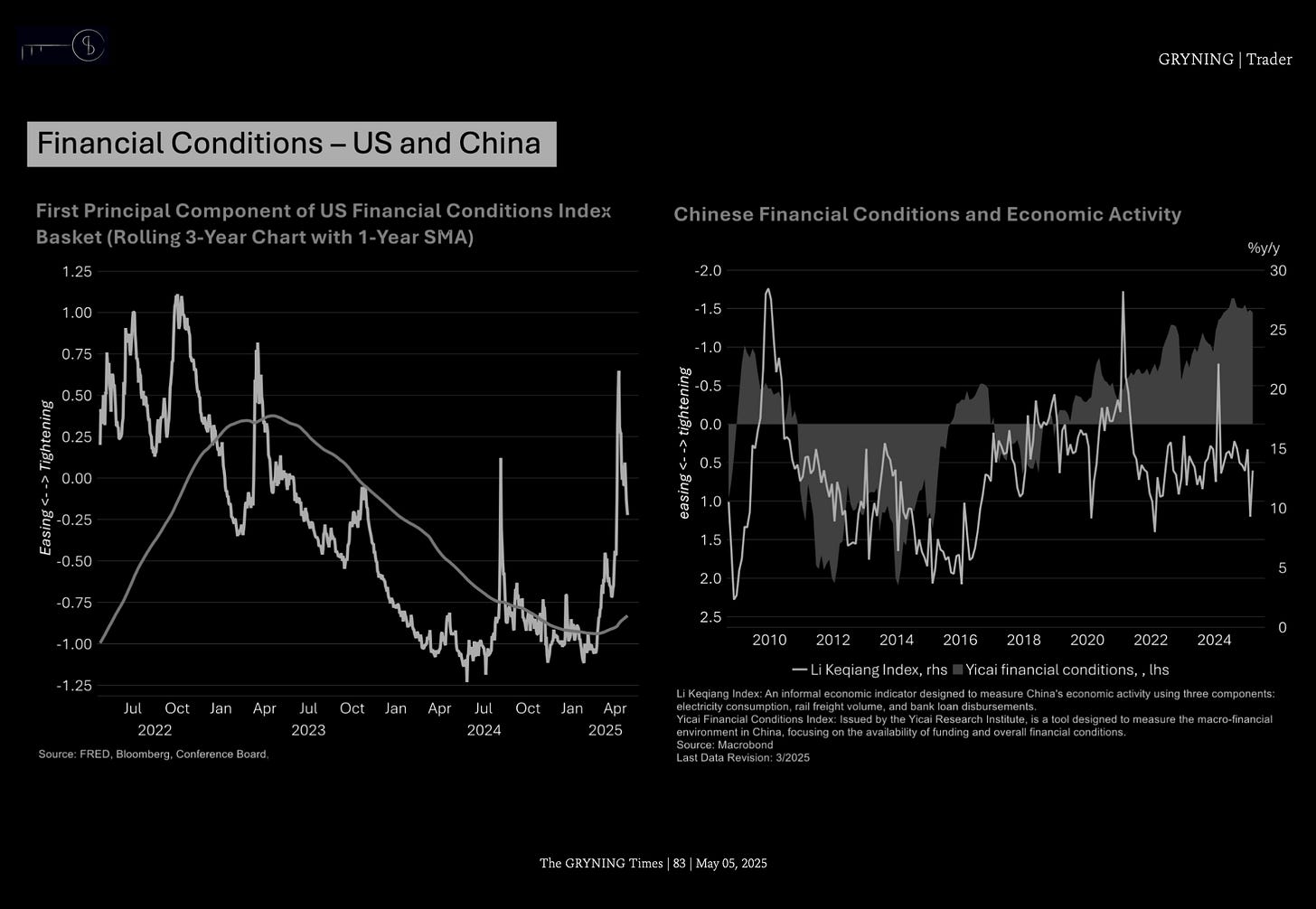Potential AGCD?
US stocks closed lower Tuesday as investor sentiment soured amid mixed signals on trade and the start of the Federal Reserve’s policy meeting.
The S&P 500 slipped nearly 0.8%, the Nasdaq 100 lost 0.9%, and the Dow dropped 389 points.
Diplomatic tensions also flared after a sharp exchange with Canadian Prime Minister Mark Carney, who said “Canada is not for sale,” prompting Trump to reply, “Never say never.”
Tech stocks weakened, with Meta falling 1.8% and Tesla down 1.7% on disappointing European sales.
Palantir Technologies sank 12% after delivering results that fell short of investor expectations, while Ford rose 2.4% even after cautioning that tariffs could cut its 2025 earnings by about $2.5 billion.
Trump's escalate-to-de-escalate strategy has been about drawing the rest of the world back into alignment with the U.S., using the U.S. consumer as leverage.
His Treasury Secretary, Scott Bessent, has spent the past few days making the case to the world that the U.S. has been and will remain the best place for global capital.
He reminded the world that "we have the world’s reserve currency, the deepest and most liquid markets, and the strongest property rights," and for those reasons, the United States is "the premier destination for international capital."
To further drive home the appeal for global investors and governments, Bessent says the Trump administration's goal is simply more: "more jobs, more homes, more growth, more factories, more critical manufacturing plants, more semiconductors, more energy, more opportunity, more defence, more economic security, and more innovation."
Now, as we've discussed, and part of the sales pitch, the second level of the “escalate-to-de-escalate” strategy is about isolating China.
The slide above is from our weekly commodity report: Access this week’s report here .
Over the past couple of weeks, the administration has been making significant public efforts to reduce China's supply chain negotiating leverage over the United States and the rest of the world.
It's all about India.
VP JD Vance was in India two weeks ago, hosted by Modi, and he made a speech on U.S. and India's shared economic interests. It was strategic - a signal to the world that India is positioned to fill the supply chain gap for certain critical low-cost manufacturing, minerals, pharmaceuticals, etc., as a "fair" trading "friend."
This was clearly intended to contrast with China. JD ended his speech by saying "the future of the 21st century is going to be determined by the strength of the United States-India partnership ... if we fail to work together successfully, the 21st century could be a very dark time for all of humanity."
It has since been said by Trump advisor Peter Navarro, that India will be the first trade deal . . . And it may come by the end of the week.
Trump said yesterday that he will make a "very, very big announcement" before his Middle East trip on Monday. He calls it "one of the most important announcements in many years."
Maybe its something bigger. Remember, we talked a few weeks ago about the potential for "a grand coordinated deal (AGCD), all at once (and probably over a weekend)?" There's probably a reason, almost a month since "Liberation Day," that no trade deals have been done.
What would a grand coordinated deal look like (a "Mar a Lago Accord")?
Based on what's been guided by key Trump advisors: Tariffs get slashed, in exchange for countries opening up their markets (take down their trade barriers), boosting their defence spending, committing to buy more from the U.S., investing in American manufacturing, and buying U.S. Treasuries - and a very critical piece: isolating China.
How do they deal with China?
The day after Vance's speech in India, Scott Bessent called out the IMF and World Bank in a prepared speech for the failure of these Bretton Woods institutions to stick to their mission. Instead of upholding global stability, they allowed China to (my liberal paraphrasing) corner the world's export market through decades of currency manipulation and, in the process, become the world's loan shark.
In short, Bessent called on the IMF and World Bank to return to their mission (do their jobs). That would mean policing China. Curbing it's manipulative economic practices, which would result in reducing China's global economic advantage and reducing their geopolitical influence.









